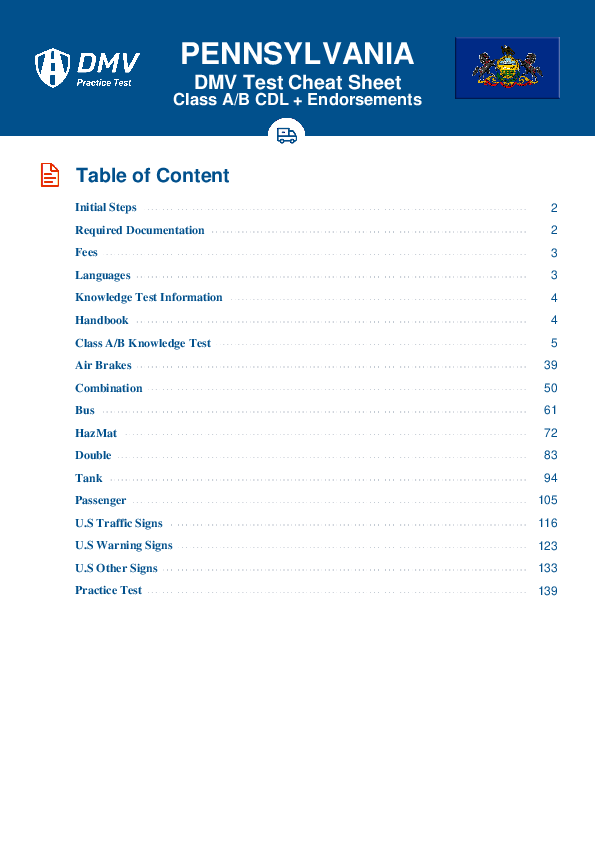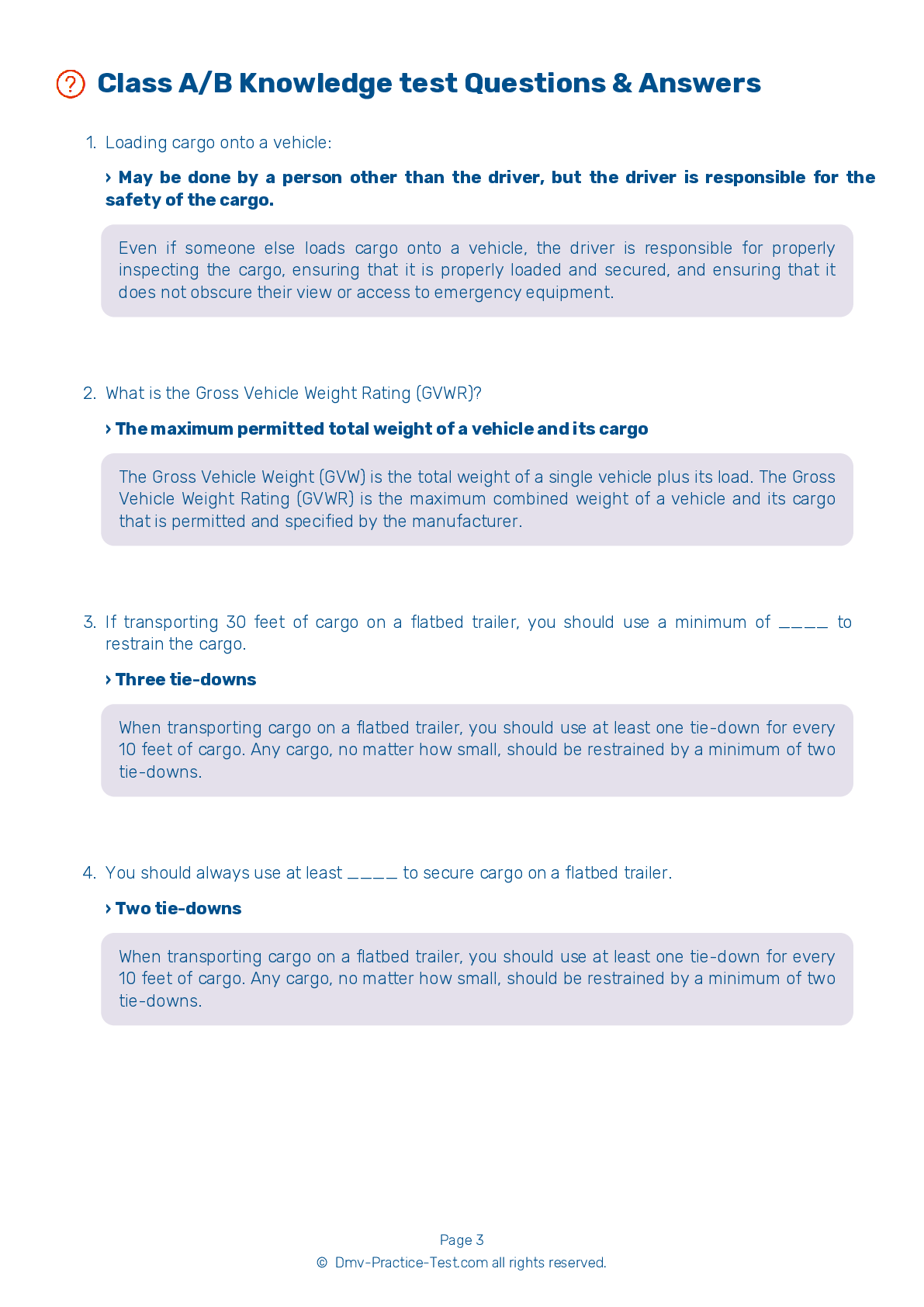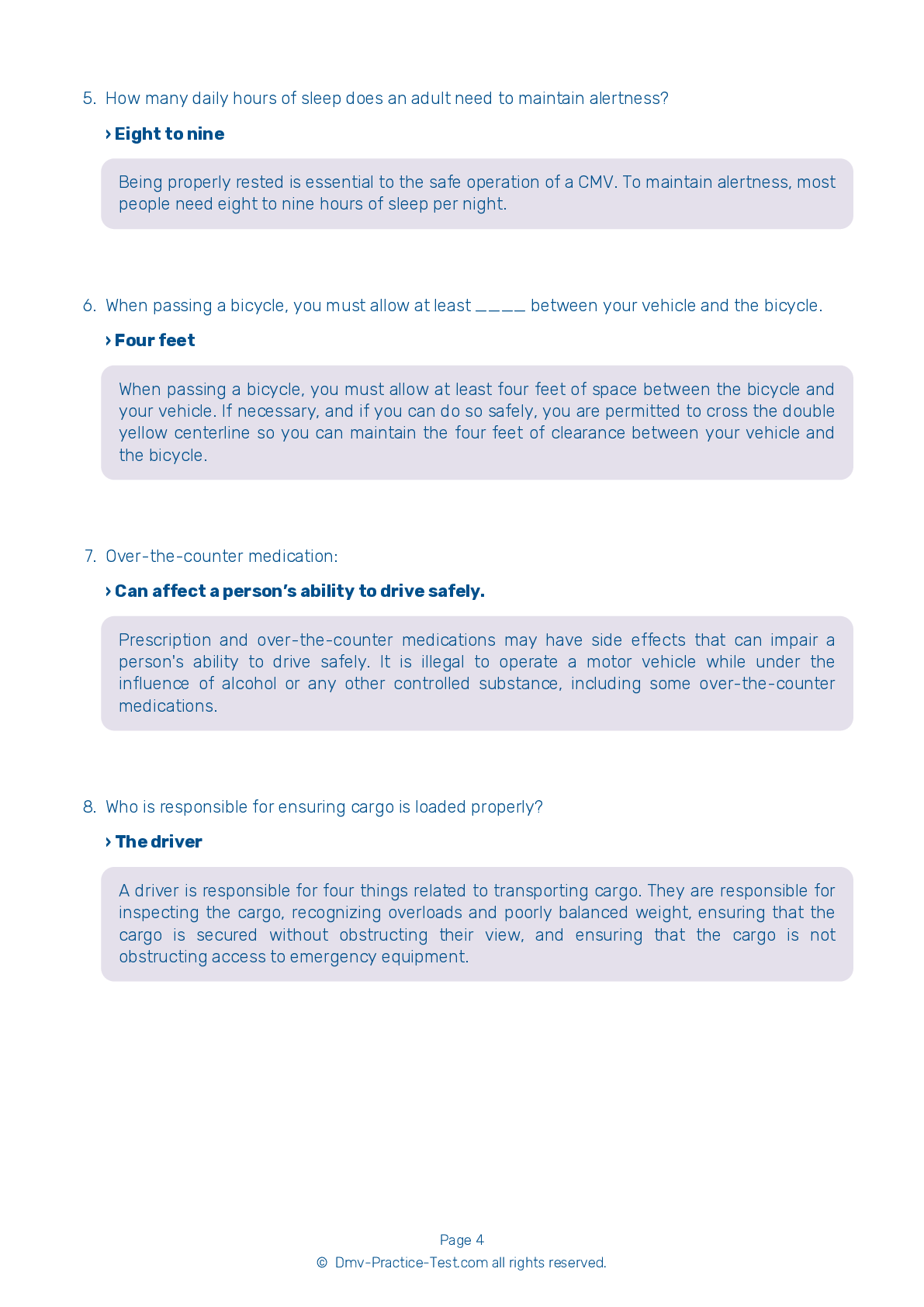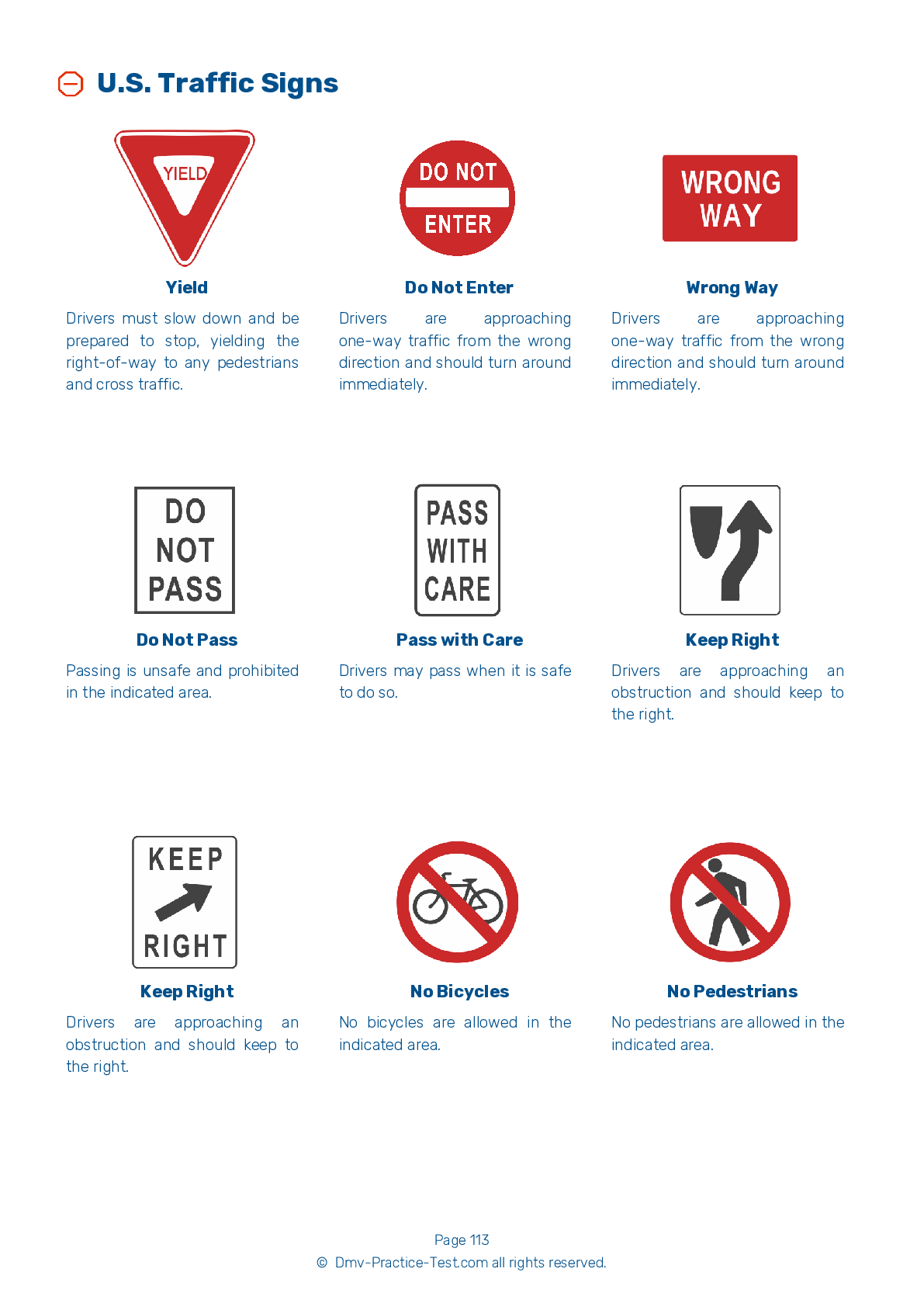Tank Endorsement Test | Pennsylvania 2026 #1 Page 2 of 3
Train for FREE with our Pennsylvania tank endorsement practice test online. The official exam test consists of several obligatory parts, with all of them checking your knowledge of different blocks of road rules. If you need to obtain a PA tank license in 2026, practice as much as possible. Free sample tests published on our website will help you check and improve your knowledge and boost your grades. Please bear in mind that DMV requirements for issuing a CDL tank vehicle endorsement may vary from state to state.
8 . The easiest way to recognize that your trailer has begun to skid is to:
The easiest way to spot a trailer skid is to use your mirrors. Any time you brake hard, check your mirrors to ensure that your trailer is still in its proper position.
9 . When inspecting underneath your vehicle for leaking fluids, you must look for all the following, except:
When approaching your vehicle before a trip, be sure to look underneath the vehicle for fresh oil, coolant, grease, or fuel leaks.
10 . What happens when the wheels of a trailer lock up?
A trailer tends to swing around, potentially resulting in a trailer jackknife, if its wheels lock up.
11 . An applicant has ____ to pass the HazMat recertification test before they will be required to obtain a learner’s permit.
As with any CDL test, you can take the HazMat recertification test up to three times. After a third failure, you will have to obtain a learner's permit and take the HazMat knowledge test.
12 . While driving, if it is discovered a vehicle's ABS is not working, the driver should:
If an Anti-Lock Braking System (ABS) is not working, the vehicle's basic braking functions are still intact. The driver should continue to drive and brake in a normal fashion.
13 . If a tire fails, the driver should:
If a tire fails, braking could cause a loss of control. Unless braking is necessary to avoid a hazard, you should stay off the brakes until your vehicle has slowed considerably. Only then should you brake very gently, pull off the road, and stop.
14 . If you are transporting Class 3 flammable liquids and your cargo needs to be moved into another tank, the flammable liquids:
Flammable liquids should not be transferred from one vehicle to another on a public roadway, unless being moved due to an emergency. Always warn others of the hazards presented by the materials.
See the exact questions that will be on the 2026 Pennsylvania DMV exam.
99.2% of people who use the cheat sheet pass the FIRST TIME
Lillian MCcranie explains how our CDL study guide was helpful in passing the exam and recommends it to everyone.
Cameron tells us how he purchased the CDL exam, and found it to be a useful tool which helped him pass the exam and find a job.



